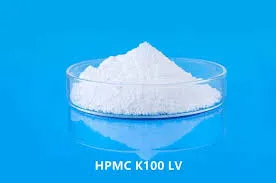
Nov . 21, 2024 11:37 Back to list
hydroxyethylcellulose based
Hydroxyethyl Cellulose-Based Materials Versatility and Applications
Hydroxyethyl cellulose (HEC) is a non-ionic, water-soluble polymer derived from cellulose, a natural polysaccharide abundant in plant cell walls. HEC has gained significant attention in various industries due to its unique properties, making it a preferred choice for a wide array of applications. This article explores the characteristics, benefits, and diverse uses of HEC-based materials.
Properties of Hydroxyethyl Cellulose
One of the most remarkable properties of hydroxyethyl cellulose is its water solubility. When dissolved in water, HEC forms a viscous gel, which can be adjusted depending on the concentration. This ability to create a stable aqueous solution is crucial for its roles in various formulations. HEC is also known for its thickening, emulsifying, and stabilizing properties, which enhance the texture and consistency of products. Additionally, it is non-toxic, biodegradable, and hypoallergenic, making it suitable for use in sensitive applications like personal care products.
Versatile Applications
1. Cosmetics and Personal Care HEC is widely employed in the cosmetics industry as a thickening and stabilizing agent. It is commonly found in lotions, creams, and shampoos, helping to maintain the emulsion and improve the overall texture of the products. Its ability to retain moisture also plays a vital role in skincare formulations, providing hydration to the skin.
hydroxyethylcellulose based

2. Pharmaceuticals In the pharmaceutical sector, HEC is utilized as a tablet binder and film-coating agent. Its high viscosity enhances the flowability of powder blends, ensuring uniformity in tablet formation. Moreover, it is used in controlled-release formulations, allowing for the gradual release of active ingredients in the body.
3. Food Industry Hydroxyethyl cellulose is utilized as a food additive, serving as a thickener, stabilizer, and emulsifier. It plays an essential role in improving the texture of various products, including sauces, dressings, and dairy items. Its ability to retain moisture is beneficial in extending the shelf life of food products.
4. Construction In the construction industry, HEC is used in cement-based materials such as mortars and plasters. Its addition enhances workability and water retention, allowing for extended open time and improved bonding properties. This makes HEC an invaluable component in various construction applications.
5. Industrial Applications HEC is employed in various industrial applications, including oil drilling and paint formulations. In drilling fluids, it helps maintain viscosity and stability, ensuring efficient operation. In paints, it assists in controlling viscosity and enhancing the application properties.
Conclusion
The versatility of hydroxyethyl cellulose-based materials makes them indispensable across numerous industries. Its unique properties—such as water solubility, thickening capabilities, and non-toxic nature—enable HEC to meet the diverse needs of various applications, from cosmetics to construction. As research continues and new methods of synthesis are developed, the scope of HEC and its applications is expected to expand even further, solidifying its place in modern formulations and products. Whether in a personal care product or industrial application, HEC remains a vital ingredient that contributes to quality and performance.
-
Versatile Hpmc Uses in Different Industries
NewsJun.19,2025
-
Redispersible Powder's Role in Enhancing Durability of Construction Products
NewsJun.19,2025
-
Hydroxyethyl Cellulose Applications Driving Green Industrial Processes
NewsJun.19,2025
-
Exploring Different Redispersible Polymer Powder
NewsJun.19,2025
-
Choosing the Right Mortar Bonding Agent
NewsJun.19,2025
-
Applications and Significance of China Hpmc in Modern Industries
NewsJun.19,2025







